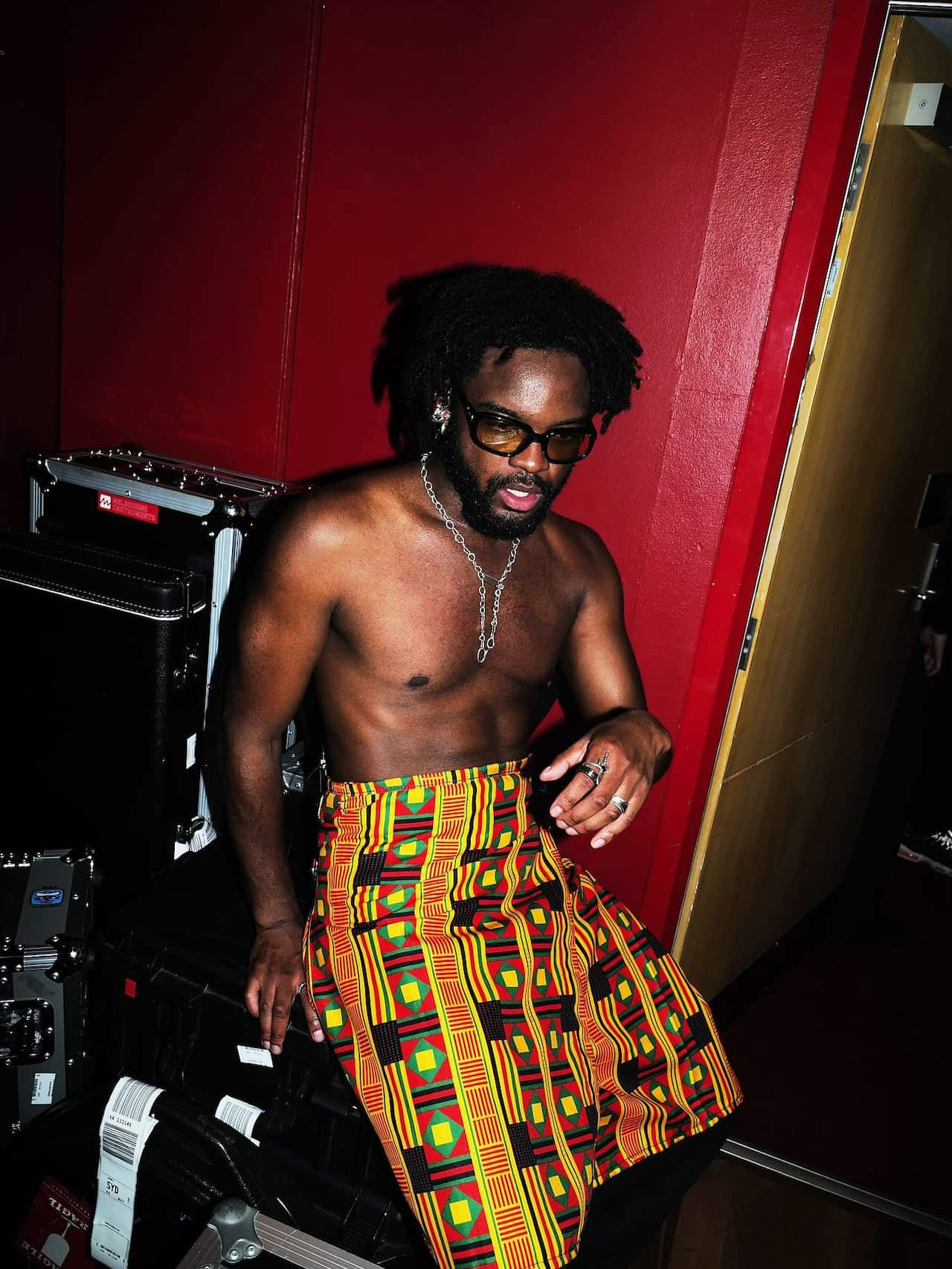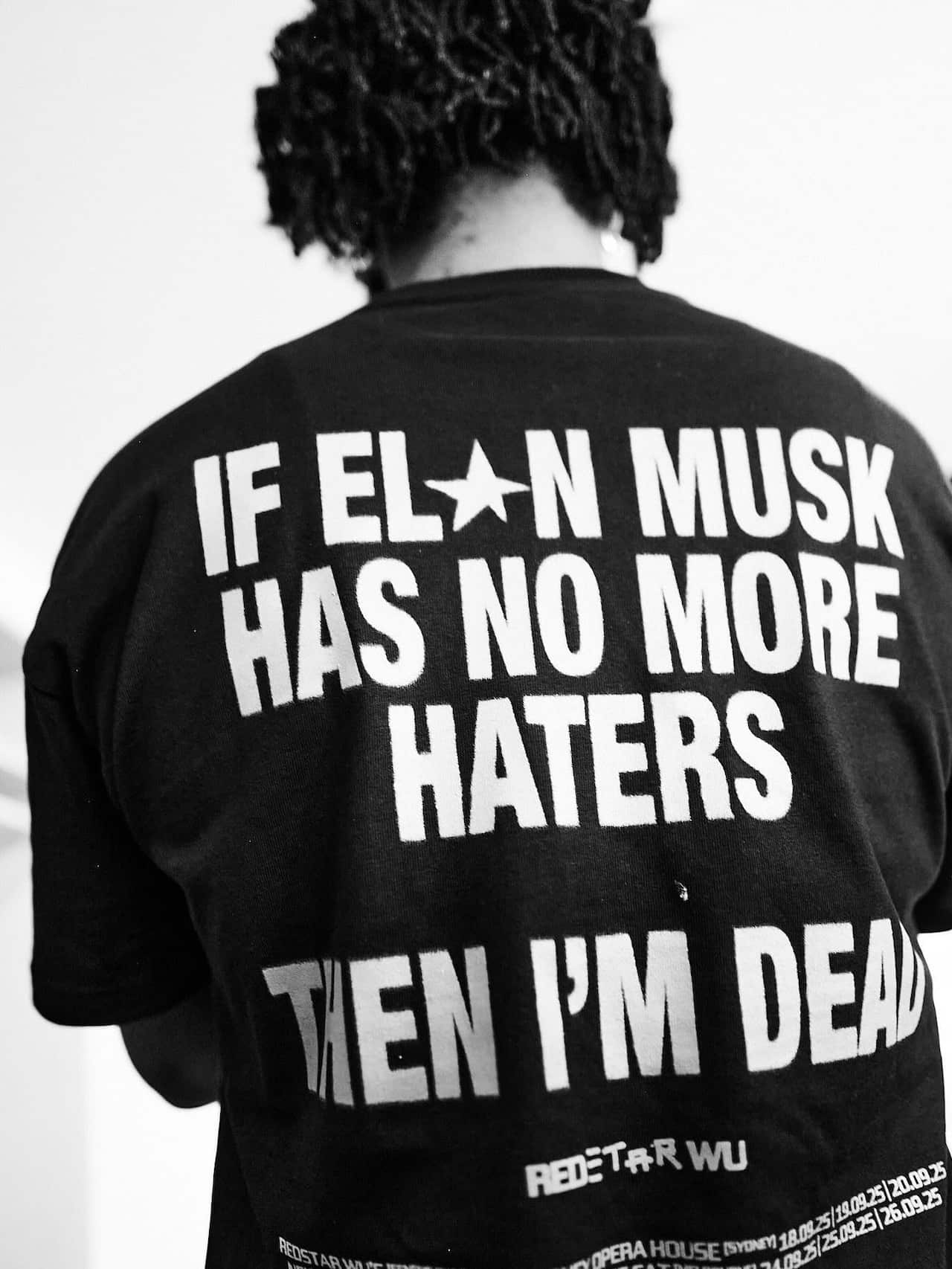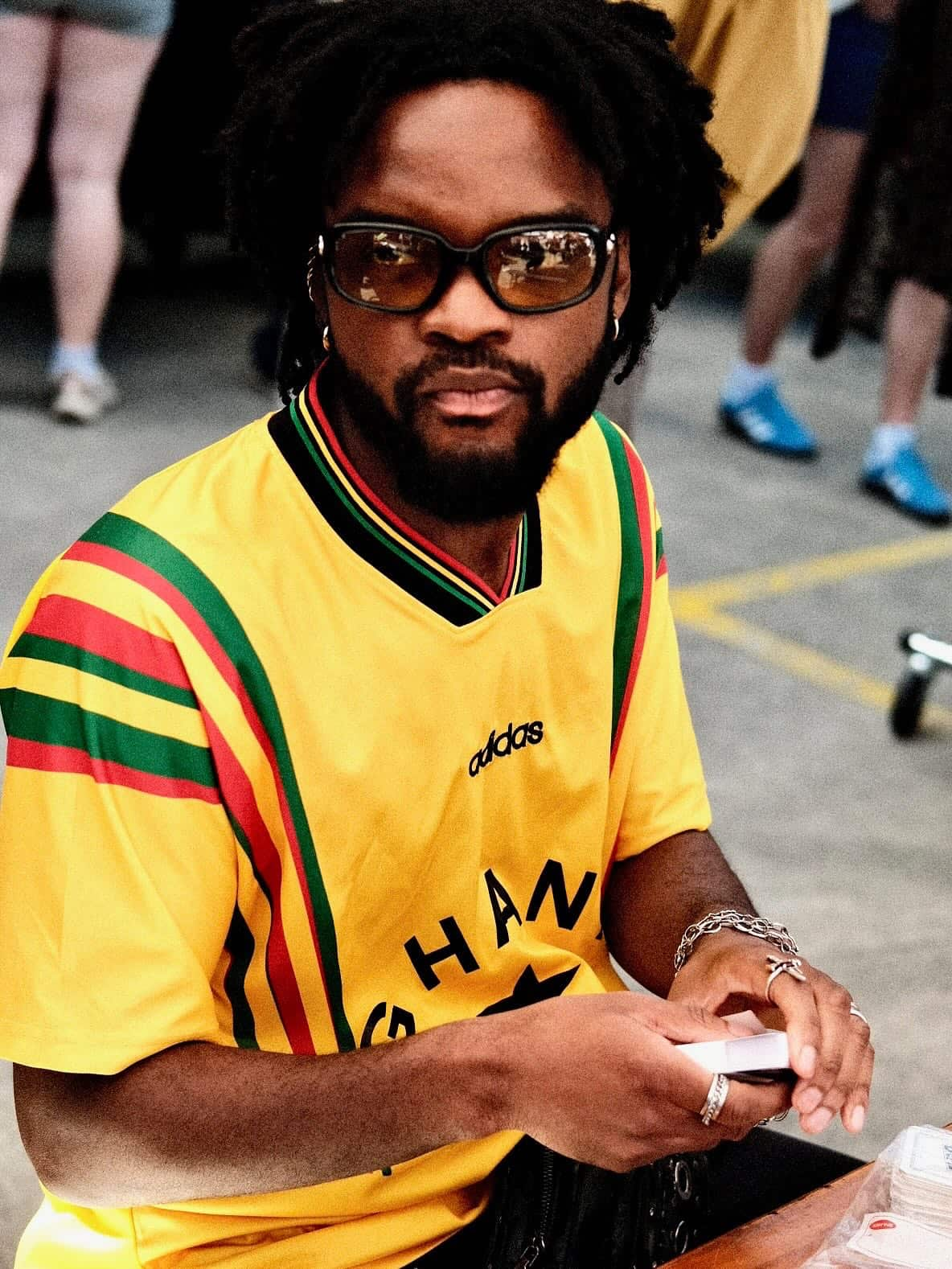"The more I became Genesis Owusu, I wasn't just a Black person."
Having moved from Ghana at age two with his family and growing up in Canberra as one of the few Black kids in his community, Genesis Owusu — or Kofi Owusu-Ansah — is no stranger to the feeling of marginalisation and identity politics.
"It was very, very weird coming and being pretty much the only Black people in our general vicinity," Owusu-Ansah told The Feed.
"It was weird for me, and it was weird for the other people as well who just didn't really interact with Black people either."
The Australian artist has won multiple ARIAs, played on late-night talk shows in the US, released two highly acclaimed albums, and earned a spot on Barack Obama's playlist. He's now gearing up to release his third album, and it contains a strong message.
Shifting experience of racism
Owusu-Ansah's childhood in Canberra, a city of less than 500,000 people, provided a space for him to hone his craft as 'Genesis Owusu' without the external pressures of the big cities.
"It was such a blank canvas that I could just colour it in all the different colours that I wanted to colour. It wasn't like Sydney or a Melbourne where all of these things were always happening and there was such an easy movement to follow," he said.
But once 'Genesis Owusu' was born, he noticed a change in the way he was perceived.
"I was now Genesis Owusu. So it's like even someone with racist attitudes because they've seen the way I post on Instagram and the way I speak on my music … it breaks the mould of what they think a Black person is."

As his music gained traction, he noticed that his status shifted his experience of racism.
"I've seen a lot of people — especially celebrities, like: 'Yeah, racism doesn't exist anymore. I've never felt it. I don't feel it' … I'm very aware that it still definitely exists, but it's really interesting going through this motion of seeing … the levels that a Black person or a person of colour might have to reach to start seeing the exit of something like that."
Speaking out in an era of censorship
In the midst of creating his music, Owusu-Ansah has also managed depression — and delved into the experience from different lenses.
On his debut album, Smiling with No Teeth, he took an analytical perspective, having recently come out of a depressive episode, while his second, Struggler, was written in the depths of one — "so it was kind of in those kind of grey clouds". Both his albums build on otherworldly themes and concepts.
"It didn't feel right for there to be some grand character or some grand metaphor [in my next album] because some things just need to be said very bluntly, very much in your face," Owusu-Ansah said.
But for his upcoming third album, he's looking outward, responding to a tense political climate.
"This [album] exists in this world, in the 2020s: here on Earth."
"There's a lot happening in the world that is just being sugar-coated or being deflected … people just need to say things straight," Owusu-Ansah said.

And in a world that feels increasingly divided, Owusu-Ansah said his role as a musician is to "reflect the times", quoting the renowned US singer and civil rights activist Nina Simone.
"I just speak my truth. I feel like that's the best that I can do … I need to say it unfiltered regardless of how other people might take it," he said.
His new single Pirate Radio explores power imbalances and a tense political climate. He calls Elon Musk a "weirdo", takes a dig at King Charles and implies that he thinks Donald Trump is a totalitarian.
"We live in a post-truth culture, war era, where elites, huge billionaire-trillionaire corporations and entities are actively and intentionally dividing people over the most superficial culture wars because they know that if we're fighting each other, we're not fighting them," Owusu-Ansah said.
"The 99 per cent are not your enemy. Trans people and immigrants are not the reason your eggs are expensive ... that just needs to be said outright."
They know that if we're fighting each other, we're not fighting themKofi Owusu-Ansah, AKA Genesis Owusu
Ignoring the algorithm
Owusu-Ansah's music in many ways goes against the modern music landscape, which is increasingly influenced by trends, virality, and social media platforms. Instead, he actively disregards the algorithm and prioritises albums and live music shows above a strong media presence.
"Many major labels and songwriters now are writing for that specific TikTok snippet because … they need to put bread on the table. Everyone's just trying to adapt to an ever-moving situation."

Industry pressures, however, have been part of Owusu-Ansah's journey.
"[My second album] was definitely the one where I felt a lot of external pressure. But I think after getting that out and touring, I was able to take a bit of a break, take a step back and really remember why I am doing what I'm doing … there's just no point to me making music if it's not a true expression of who I am and what I believe in."
While his message is direct and political, Owusu-Ansah's music remains grounded in human connection.
"[I'm] just trying to take it back to the core … it's all just about community and being amongst the people," he said, speaking about his live sets, which are often theatrical and grand.
Ultimately, Owusu-Ansah is determined to use his art to be authentic: to challenge the status quo and restore a sense of community, in a world where division and misinformation dominate our feeds.
Through award winning storytelling, The Feed continues to break new ground with its compelling mix of current affairs, comedy, profiles and investigations. See Different. Know Better. Laugh Harder. Read more about The Feed
Have a story or comment? Contact Us


